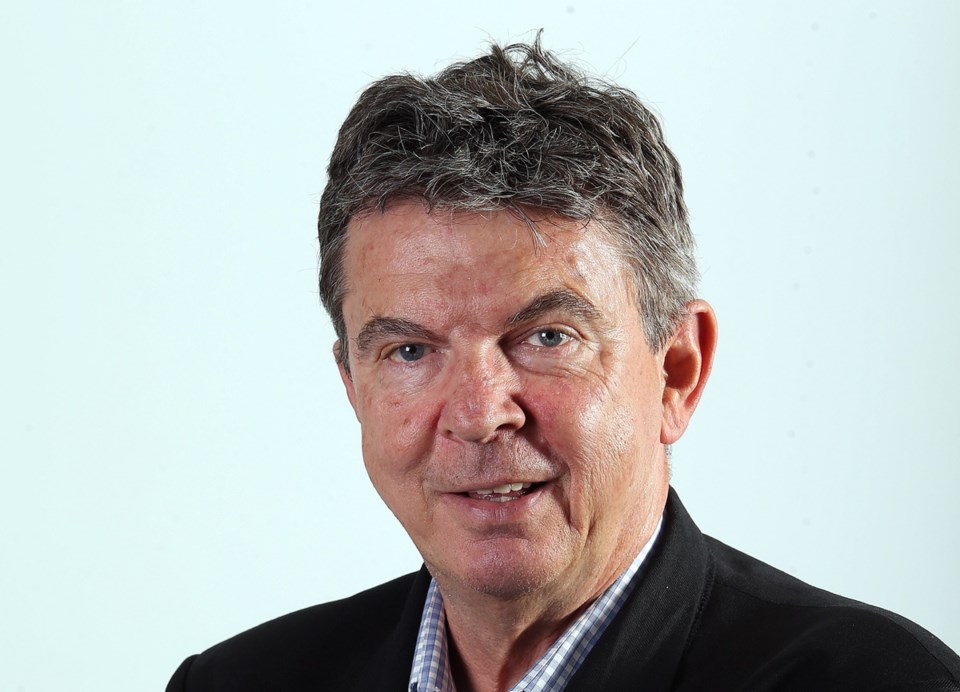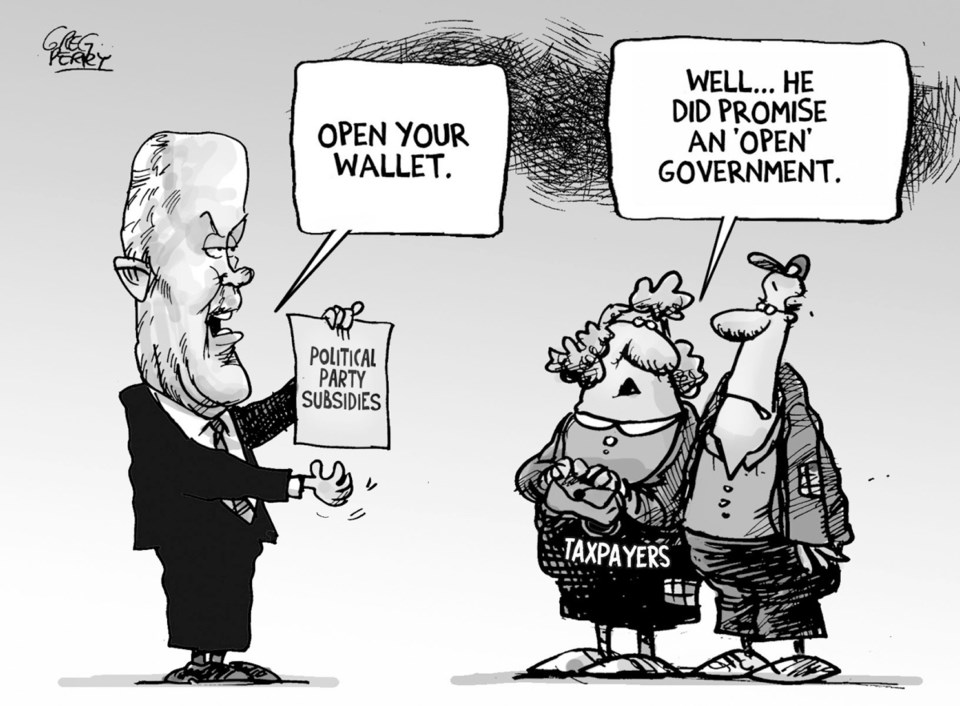 Six times over the past 12 years in opposition, the NDP introduced a model bill on reforming campaign financing to get big union and corporate money out of B.C. politics.
Six times over the past 12 years in opposition, the NDP introduced a model bill on reforming campaign financing to get big union and corporate money out of B.C. politics.
Even in a world where you can’t take anything for granted, voters could be forgiven for assuming that if the NDP ever gained power, their campaign-finance reform would look something like what they introduced over and over again when they were out of power.
But this week, they introduced campaign-finance reform for the seventh time. This time it counted, since they’re in government. And the bill is vastly different from what they’ve been trotting out in the past.
It includes two different public-financing mechanisms, under which taxpayers will be automatically funding political parties to the tune of millions of dollars. One of the funding streams is “transitional” and Premier John Horgan is assuring everyone it will phase out — “disappear” — after four years. But that is far from clear in the bill, which calls for committee study after one term that could easily make it permanent.
And the rest of the cash flow is a locked-in commitment under which taxpayers will pay 50 per cent of parties’ election campaign expenses. There’s nothing transitional about it.
None of the previous bills spelled out that public money would simply replace union and corporate money. In fact, the opposite impression was left. Skeptics continually raised the idea that it was likely or possible, and the NDP cavalierly brushed that aside.
The other major departure is just a process issue, but still significant. All the previous bills had a detailed outline of how an independent panel of some sort would review election financing in general once the big money was abolished. The bills required the chief electoral officer to start a comprehensive review right after the law took effect, to study financing, election advertising, donor limits “and any other relevant consideration.”
That independent study was often used to deflect the questions about whether taxpayers would wind up being on the hook for political-party operations. The stance was: We’ll ban big money, and then have a review recommend other refinements.
But in Monday’s bill, just as public financing was slammed into effect with no advance notice, the independent review abruptly vanished without a trace.
If the bill really is “the most significant legislation we’ve seen in B.C. since 1871,” as the over-heated premier claimed, you’d think there would be room for a independent review of the topic.
Legislation that relates to the nuts and bolts of the democratic system should have some impartial oversight, and there are always cautions about a government imposing its will unilaterally on such fundamental changes.
Those worries seem to have vanished. The NDP is imposing a done deal, and it’s different from the deal they promised for years.
The unpleasant surprises are getting a lot of attention, but the year-in, year-out introduction of the old version of campaign finance reform — now inoperative — deserves to be recalled.
They were introduced in 2005, 2008, 2010, 2015, 2016 and again last winter.
In January, the NDP laid them all together on a table at a news conference to highlight their persistence and devotion to the reform. The photo-op also left the impression that the bill was more or less a finished product, since all the versions were almost identical. (One difference is intriguing in retrospect. The last version, renamed the Get Big Money Out of Politics Act, dropped a reference to the future independent panel considering public financing as an option. That led people even further away from what happened this week.)
At that photo-op, then Opposition Leader John Horgan was asked if public financing wasn’t inevitable.
He disagreed, saying other systems do without it. “We need to take this away from government members.” He said Elections B.C. and prominent people could review the international landscape and come back with the best answer.
Instead, the NDP likely reviewed their own bank account and realized they can’t quit taking union donations cold turkey, so they wrote in two public funding streams to tide them over. It would be marginally easier to take if they hadn’t been so dismissive of people who predicted this is exactly what would happen.



